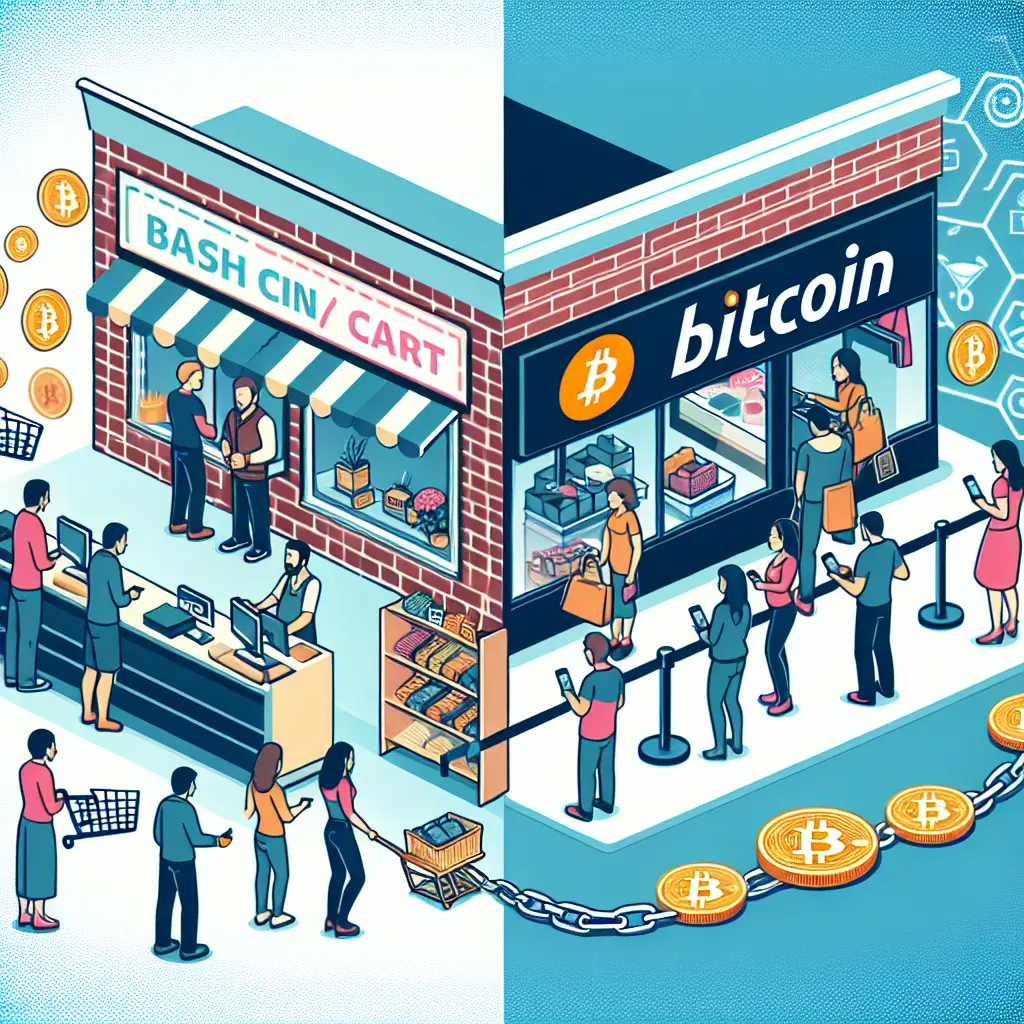Bitcoin's emergence as a pivotal force in the digital landscape has not only altered the financial sector but has significantly impacted the retail industry. With its decentralized nature and the backing of blockchain technology, Bitcoin is reshaping consumer payment options, heralding a new era in retail payment trends. Today, we delve into how Bitcoin and other cryptocurrencies are influencing the retail sector, touching on everything from Bitcoin transactions to the future of retail payments.
The retail industry has always been quick to adopt innovations that could streamline operations and enhance customer experiences. Bitcoin, a leading digital currency, is at the forefront of this transformation. As more consumers embrace Bitcoin for its convenience and security, retailers are increasingly incorporating crypto payments into their systems.
The impact of cryptocurrency on the retail sector is profound. Decentralized payment systems offer a layer of security that traditional banking cannot match, thanks to blockchain technology's inherent resistance to fraud and theft. Moreover, Bitcoin transactions provide anonymity and reduce transaction fees, making it an attractive option for both consumers and retailers.
Recent news highlights the dynamic nature of Bitcoin’s role in retail and broader economic contexts. For instance, the announcement by former President Donald Trump about making the U.S. a ‘Crypto Capital’ and a 'Bitcoin Superpower' could significantly influence Bitcoin adoption rates and consumer payment options within the U.S. retail sector (source needed). His support for cryptocurrency might bring regulatory changes that could further integrate Bitcoin into everyday transactions.
Similarly, controversial figures like Craig Wright, who faces a perjury investigation over his claims of being Bitcoin's creator, continue to stir the crypto community, potentially affecting market stability and consumer confidence in using Bitcoin for retail transactions (source needed).
Bitcoin Adoption in Retail Payments
One of the most significant trends is the growing integration of Bitcoin into retail payment systems. Retail giants and small businesses alike are beginning to accept Bitcoin as a form of payment. This shift is not just about embracing a new payment form; it's about tapping into the vast market of tech-savvy consumers who prefer using digital currencies.
For instance, Jersey City’s decision to invest pension funds in Bitcoin ETFs underscores the growing trust and institutional acceptance of Bitcoin as a viable asset class (source needed). This could encourage more retailers to accept crypto payments, anticipating stability and growth in crypto use.
The integration of Bitcoin into retail comes with its challenges. Volatility remains a significant concern, with incidents like Grayscale losing $20 billion in Bitcoin and Ethereum ETFs highlighting the risks associated with crypto investments (source needed). However, these challenges also drive innovation in Bitcoin payment processing systems, ensuring more secure transactions and robust mechanisms to handle the volatility.
Retailers leveraging Bitcoin must also navigate the complex regulatory landscape that varies significantly from one jurisdiction to another. The potential for regulatory changes, especially with political figures like Trump and RFK Jr. showing great interest in cryptocurrency, adds another layer of complexity to crypto payments in retail.
The Future of Retail Payments
Looking ahead, the trajectory for Bitcoin in retail appears promising. The move towards digital currencies is part of a broader shift towards more integrated, user-friendly payment systems. Innovations in blockchain technology will likely continue to spawn new applications that can further streamline and secure retail transactions.
Notably, decentralized payment systems are just the beginning. The future might include fully automated, AI-driven shopping experiences where Bitcoin and other cryptocurrencies are preferred due to their global accessibility and security features.
Bitcoin's influence on the retail industry is undeniable. From transforming consumer payment options to reshaping retail payment trends, Bitcoin and blockchain technology offer a glimpse into the future of retail payments—a future characterized by decentralization, enhanced security, and innovation.
As we continue to monitor these developments, it's clear that the intersection of cryptocurrency and retail will be a critical area for growth and innovation. For retailers, staying ahead means embracing these changes and preparing for a world where digital currency transactions become the norm.
Thank you for joining me on this exploration of Bitcoin's impact on the retail industry. As we look to the future, one thing remains certain: in the ever-evolving landscape of retail payments, innovation doesn't just create opportunities—it redefines them.










Leave a Comment